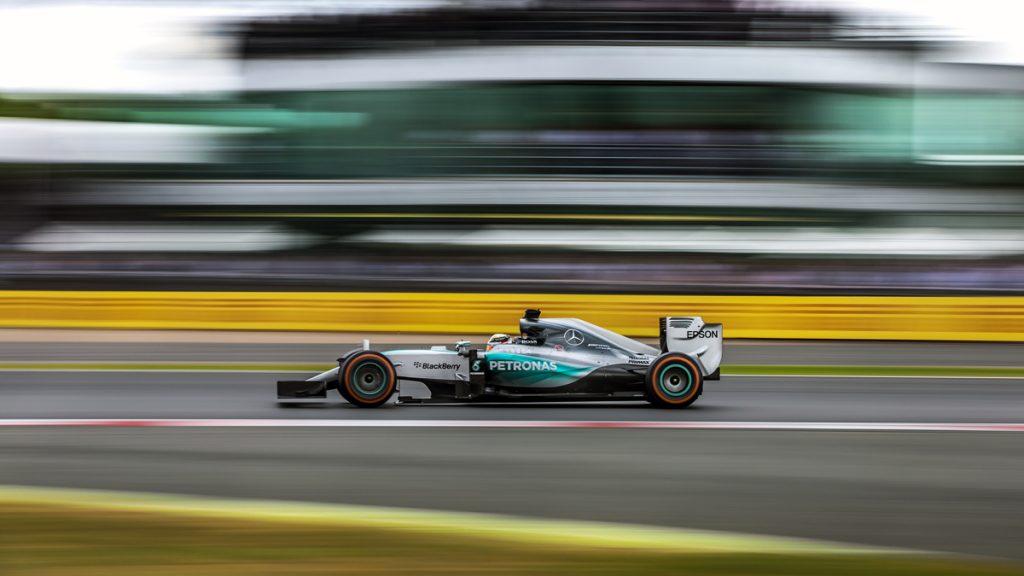
Jonny Henchman tells us how to master the panning shot, a key technique in the F1 photographer’s arsenal.
- Advice is relevant for all forms of motorsport photography, not just F1.
- All photos by Jonny Henchman / Fireproof Creative. Follow Jonny on Instagram, Twitter or Flickr.
- Read More: Part 1: Equipment / Part 2: Getting the Shot
Motorsport photography can usually be grouped into two arbitrary categories, documentary and creative. Documentary style usually involves a pin sharp, crisp shot with the whole subject in focus using a high shutter speed and a fast f/stop (for shallow depth of field). While this is great for corporate advertising and certain types of editorial content, it often fails to impart the feeling of speed. Because of the high shutter speeds that are typically used, everything will be stopped dead, giving the impression that the subject was stationary when the image was captured. You really need to pay attention to the background with this type of photography as all the ugly sections of fences and blue porta-loos are going to be pretty obvious distractions in your images if you don’t.
Conversely, at the other end of the scale is the artistic ‘pan’ shot. This relies on using a low shutter speed i.e. the shutter stays open longer, and tracking the subject precisely so it remains sharp while the background blurs into streaks. Remember whichever style you opt for, the very best photographers focus on trying to capture and communicate the thrill and atmosphere of motorsport through their images, they don’t just take pictures of racing cars. While the panning technique is simple in principle it can be exceptionally difficult to master and requires a significant amount of practice to get consistently reliable results. The overall difficulty is influenced by a number of the following factors.
The longer your shutter stays open the more susceptible your image is to any unintentional movements you make. Unless you have incredibly steady hands there is a high likelihood of you moving your camera out of sync with the subject, this is amplified significantly at longer focal lengths. This tends to result in blurry photos that don’t add anything to the overall success of the image. This is where a monopod can help you out some.To be clear I’m not talking about the typical movement you expect from a racing machine, that’s a given, but the kind of movement you don’t necessarily think would have an effect on an image. Bumps, acceleration, breaking, gear changes, steering, cornering and vibration are all variables that influence a vehicles posture on track and these can affect the sharpness of your images.
An obvious example of this is demonstrated when shooting motorcycles, you can pan perfectly with the machine itself but the rider is always shifting their weight around and changing position. This can quite frequently result in a sharp bike but a blurry rider while attempting a ‘pan’. The same is true of single seater racing cars i.e. F1, while the car could feasibly remain pin sharp, you still have to factor in the driver’s head bobbing around due to g-force or driving style. Depending on what kind of shot you want, a blurred crash helmet could be the difference between success and failure.
Working with low shutter speeds can also give your camera’s focusing system a workout. A traditional side on pan shot should be relatively simple for most autofocus systems to deal with but when you try the same approach at ¾ angles the camera and the photographer need to be more flexible. Engage continuous or Servo mode and make sure you keep your focus point nailed on to a specific part of the subject – usually the driver or riders helmet, or in the case of closed vehicles the front quarter nearest you.



